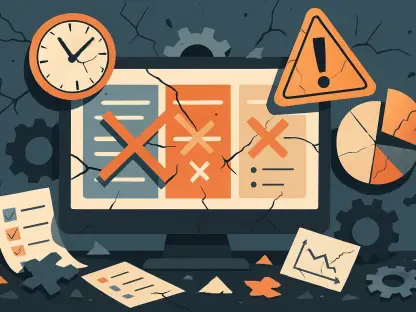In a world where global economies are more interconnected than ever, a staggering statistic emerges from South AmericArgentina’s inflation rate, though recently tamed, still hovers near 200% annually in some estimates, marking it as one of the highest globally. This isn’t just a number on a spreadsheet—it’s a signal of deep distress in a nation whose stability holds surprising weight for American interests. What happens when a major Latin American economy teeters on the brink of collapse? The ripples could reach far beyond Buenos Aires, potentially unsettling a region critical to U.S. national security and economic priorities. This unfolding crisis under President Javier Milei’s radical reforms demands attention, not just for humanitarian reasons, but for the broader geopolitical stakes at play.
Why Should Americans Pay Attention to Argentina’s Financial Meltdown?
The economic turmoil in Argentina might seem like a distant problem, but its implications are closer to home than many realize. As a key player in Latin America, Argentina’s struggles with crippling debt and a plummeting peso could destabilize an entire region that shares a hemisphere with the United States. A faltering economy in Buenos Aires doesn’t just mean hardship for Argentines—it risks altering the ideological landscape of neighboring nations, potentially shifting alliances and influence away from democratic values that align with American interests.
This isn’t merely about economics; it’s about the balance of power. If Milei’s free-market experiment fails, it could pave the way for anti-American sentiments to gain traction across Latin America. The United States has long viewed this region as a strategic buffer, and any significant disruption could invite interference from adversarial powers looking to exploit instability. Thus, the stakes extend beyond trade or investment—they touch on core security concerns that affect daily life far north of the equator.
What’s at Risk with Argentina’s Economic Challenges in a Fragile Region?
Argentina’s financial woes are not new, but their current intensity under Milei’s leadership adds a fresh layer of urgency. Elected on a promise of sweeping change, Milei initially made strides by balancing the national budget and curbing inflation from its peak. Yet, recent setbacks—political scandals, sluggish growth, and mounting public discontent—have cast doubt on the sustainability of these gains, with inflation creeping back up and unrest simmering in urban centers.
The broader regional context amplifies these concerns. Latin America has long been a battleground of competing ideologies, with populist and authoritarian movements often gaining ground during economic hardship. If Argentina’s reforms collapse, it could embolden far-left factions or even authoritarian regimes, reminiscent of Venezuela’s descent, creating a domino effect of instability. Such a shift would challenge U.S. efforts to foster democratic stability in the area, making the current crisis a pivotal moment for the hemisphere’s future.
This volatility also carries practical consequences. A destabilized Argentina could disrupt vital agricultural exports, on which global markets, including the U.S., heavily rely. With the nation’s currency weakening and economic policies in flux, the potential for supply chain interruptions or price spikes looms large, directly impacting American consumers and businesses.
How Economic Collapse Could Trigger Wider Threats to U.S. Interests
Delving deeper into the risks, the failure of Milei’s reforms could unleash a cascade of problems with direct ties to U.S. security. Mass unrest or economic desperation might drive significant migration waves, straining borders and resources in nearby countries, some of which are key American allies. This spillover effect could create humanitarian and logistical challenges that demand international response, pulling focus and funds from other pressing priorities.
Another pressing danger lies in the ideological vacuum that failure might create. A faltering capitalist model in Argentina could inspire a resurgence of socialist or authoritarian governance, often aligned with nations like China or Russia, both of which have shown interest in expanding influence in Latin America. Historical patterns, such as Venezuela’s alignment with such powers, illustrate how quickly economic despair can translate into geopolitical shifts that undermine U.S. strategic goals.
Additionally, Argentina’s role as a resource-rich nation cannot be overlooked. Its vast agricultural output and strategic location near key trade routes make its stability essential for global economic health. Currency instability, particularly Milei’s stalled plan to adopt the U.S. dollar, exacerbates these risks. Unlike successful dollarization in El Salvador and Ecuador, where inflation was slashed dramatically, Argentina’s hesitation could deepen market uncertainty, affecting not just local but international economic networks tied to American interests.
Expert Perspectives and Ground-Level Realities on the Crisis
Insights from economic analysts paint a stark picture of Argentina’s predicament, with many zeroing in on currency reform as the linchpin of recovery. A respected economist specializing in Latin American markets has emphasized, “Currency stability is non-negotiable; without it, even the best fiscal policies will crumble under inflationary pressure.” This view critiques past International Monetary Fund advice that favored inflationary measures, now widely seen as counterproductive.
Real-world examples underscore the urgency of action. Ecuador’s adoption of the U.S. dollar in 2000 brought inflation down from a staggering 96% to single digits within a few years, offering a roadmap Milei has yet to follow. Meanwhile, on the ground in Argentina, small business owners grapple with a peso that loses value daily, forcing them to raise prices or shutter operations. These personal struggles highlight the human cost of indecision and the need for bold, structural change to restore confidence and functionality to the economy.
The contrast between policy theory and lived experience is striking. While debates over dollarization or tax reform dominate headlines, families and entrepreneurs face immediate survival challenges, unable to plan for the future in an economy where savings evaporate overnight. Their stories serve as a reminder that solutions must address both macroeconomic stability and the tangible hardships faced by ordinary citizens.
Strategic Steps to Support Argentina and Protect U.S. Security
Addressing this crisis requires targeted measures from both Argentine leadership and U.S. policymakers. For Milei, embracing dollarization could provide a much-needed anchor for the economy, mirroring the transformative impact seen in El Salvador and Ecuador. Complementing this, adopting a low-rate flat tax—modeled on Eastern European successes since the 1990s—and eliminating export taxes could stimulate investment and growth, easing domestic pressures.
From the American side, tangible support is equally critical. Proposals for a $20 billion bailout, discussed during previous administrations, alongside tariff reductions or a free-trade agreement, would signal strong backing for a vital ally. These actions are not mere gestures of goodwill; they represent calculated efforts to bolster a market-based democracy in a region prone to authoritarian drift, directly safeguarding U.S. interests against hostile influences.
Beyond immediate aid, fostering long-term partnerships through technical assistance and investment incentives could help Argentina rebuild resilience. Encouraging private sector collaboration, particularly in agriculture and energy, would further intertwine economic stability with mutual benefit. Such strategic moves aim to prevent a regional backslide, ensuring that Latin America remains a zone of cooperation rather than conflict or exploitation by external powers.
Looking back, the response to Argentina’s economic struggles revealed a complex interplay of local policy and international stakes. Reflecting on those efforts, it became clear that decisive action—whether through currency reform or U.S. support—held the key to averting broader instability. The path forward demanded sustained commitment to innovative solutions like dollarization and trade partnerships, alongside a keen awareness of how regional dynamics shaped global security. As challenges persisted, the focus shifted to building frameworks for resilience, ensuring that economic recovery in one nation strengthened the foundation for safety and prosperity across the hemisphere.









